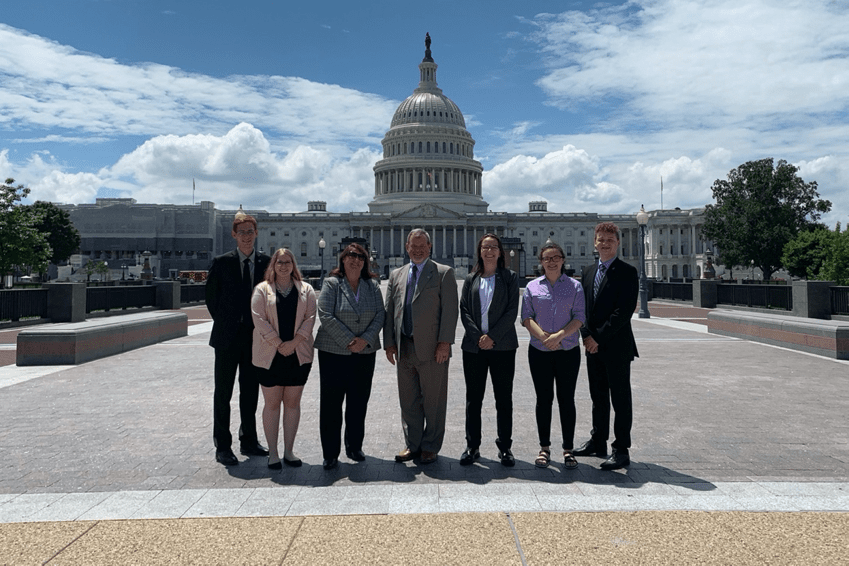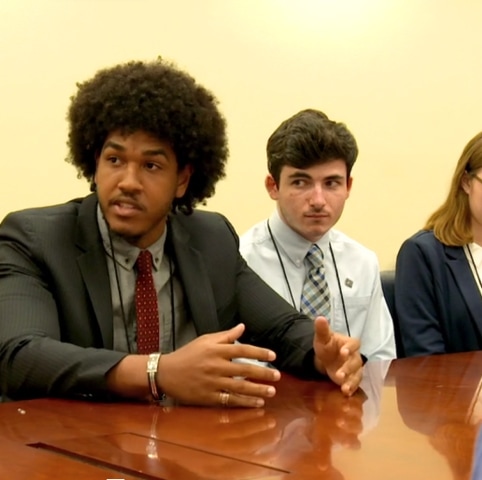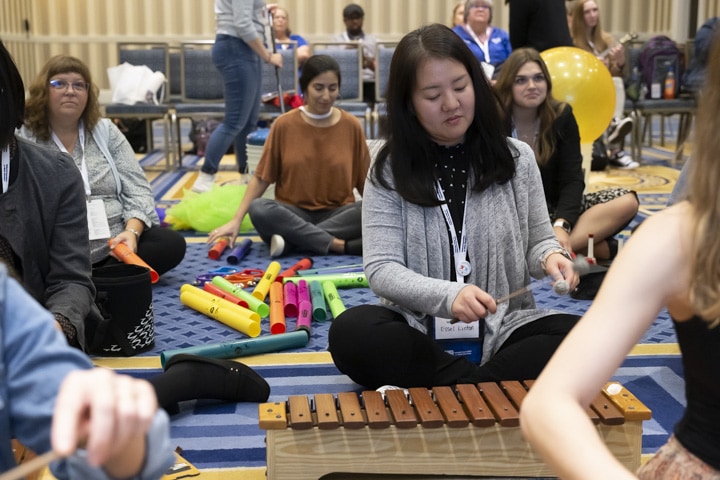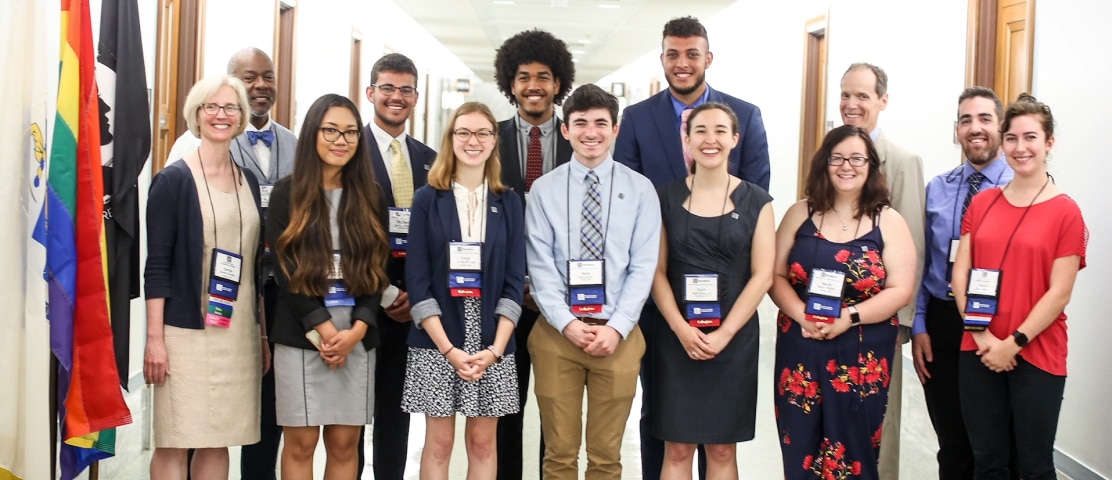
Leading the Fight for Music Education
The National Association for Music Education (NAfME), together with our affiliated state music education associations, advocates at the federal, state, and local levels to educate elected officials and other key decision makers about the impact and importance of music education. Representing music educators, students, and advocates, NAfME is dedicated to ensuring the access to and presence and perseverance of quality music programs operated by certified music educators, for all students across the nation, regardless of circumstance. Through active advocacy and collaboration, we are changing the national conversation about music’s role in delivering an outstanding well-rounded education to all students. Questions regarding advocacy initiatives? Contact our NAfME Advocacy and Policy team at advocacy@nafme.org.
NAfME Hill Day
Every June, NAfME leaders visit Capitol Hill to request support for their music students and programs.


Music Teacher Profession Initiative
This task force of NAfME leaders from higher education institutions seeks to identify barriers to equity in music teacher recruitment, education, and retention
ADVOCACY BULLETIN BLOG

Grassroots Action Center
- Support Music Education in State and Federal Education Policy
- Get Involved with the Legislative Process
- Find Your Representatives and Engage Your Members in Congress
- Get Updates on Legislation Affects Music & Arts Education
ADVOCACY RESOURCE CENTER
NAfME Civic Action Field Guide
This field guide will help you better understand the processes behind how public education is governed and funded.
Local Advocacy Action Plan
This resource is intended to aid music educators and music education supporters as they seek to improve the overall condition of a music program.
Music and Social-Emotional Learning (SEL)
Research tells us that music educators are well-suited to help students develop socially and emotionally.
NAfME advocates at the federal level to educate elected officials and other key decision-makers about the impact and importance of music education programs.
Federal Funds Survey Brief for Advocates
How have federal funds supported music and arts education and what action can you take to support music education?
ESSER Toolkit
How can you make use of ESSER funds to support more students having access to a quality music education in your school?
Title IV-A Toolkit
Also known as the Student Support and Academic Enrichment grants, SSAE provides supplemental funding to school districts in three broad areas.
State Advocacy
Learn about state-level advocacy including the activities of the family of NAfME state music education associations and the NAfME Advocacy Leadership Force (ALF)
Annual Event
Music In Our Schools Month

This annual celebration of music in our nation’s schools is the year’s biggest opportunity to advocate for music education.









